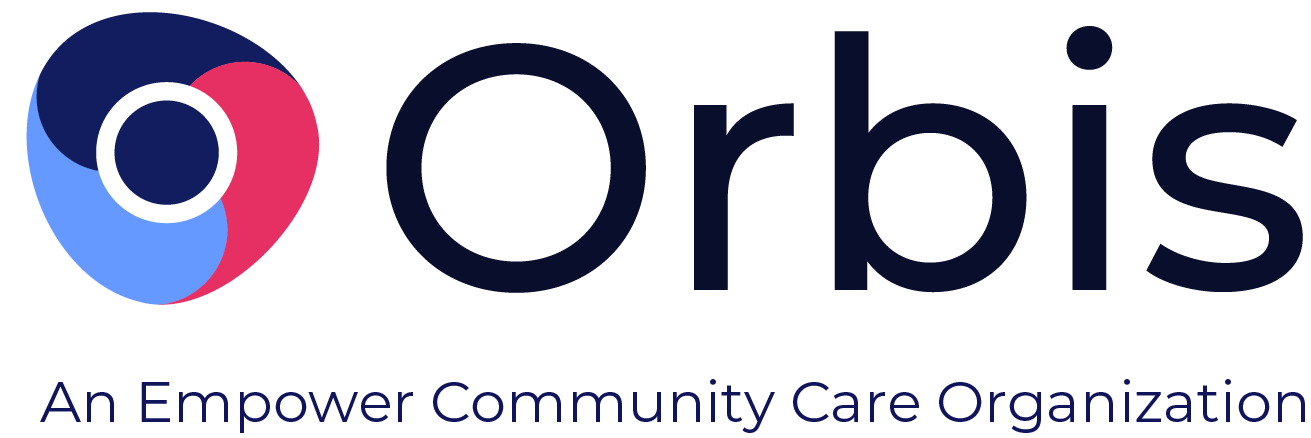In criminal justice and human services, a critical aspect of guiding at-risk youth and adults toward positive transformation lies in understanding their unique needs, strengths, and risks.
Enter risk, needs, and strengths assessments—a fundamental tool that empowers professionals to make informed decisions and tailor interventions for those in their care.
Understanding Risk, Needs, and Strengths Assessments
Risk, needs, and strengths assessments are the bedrock of informed decision-making within the criminal justice and human services domains. They are comprehensive evaluations designed to identify an individual's risk levels, criminogenic needs, protective factors, and responsivity factors.
These assessments play a pivotal role in understanding an individual's strengths and challenges, paving the way for targeted support and evidence-based interventions. These focused evaluations serve a crucial purpose: to comprehensively profile individuals at risk, be they at-risk youth seeking guidance or adults navigating challenging circumstances.
By employing a systematic and evidence-based approach, risk, needs, and strengths aim to shed light on the factors contributing to an individual's risk of reoffending or encountering further challenges.
Critical Components of Risk, Needs, and Strengths Assessments
Several integral components come into play to provide a holistic understanding of everyone’s unique situation. These components include:
- Risk: Professionals utilize risk assessments to gauge the likelihood of an individual engaging in harmful behavior or reoffending. This critical information helps practitioners decide the level and intensity of supervision and service needed to reduce the potential for recurrence.
- Criminogenic Needs: Risk/needs assessments delve into identifying criminogenic needs, which are the underlying factors contributing to delinquent and criminal behavior. By pinpointing these dynamic needs, professionals can address changeable factors and implement targeted strategies to promote positive change with the client.
- Protective Factors: Equally important is identifying protective factors - the strengths and resources that can serve as a buffer against criminal behavior. Emerging research is demonstrating the predictive power of measuring strengths. Moreover, strength assessment provides excellent support in facilitating client engagement. By bolstering these protective elements, professionals can fortify an individual's ability to navigate challenges and cultivate resilience.
- Responsivity: Recognizing that one size does not fit all, risk/needs/strengths assessments also consider responsivity factors. These elements encompass an individual's unique characteristics, such as learning style, cultural background, and personal preferences. Understanding responsivity ensures that interventions are well-suited to each person's circumstances.
- Empowering with Knowledge: The value of risk/needs/strengths assessments lies in the profound insights they offer into individual strengths and challenges. By understanding the intricate web of need factors and protective elements surrounding an individual, professionals can chart a course with the client that plays to their strengths while addressing areas that require attention.
- Collaboration: By using the assessment results to help the client understand their strengths and challenges, the justice practitioner can collaborate in building service plans that promote positive change and also build on the client’s incentives and aspirations.
These assessments allow practitioners to design personalized intervention plans in collaboration with the client that are evidence-based, efficient, and tailored to maximize impact. Identifying an individual's strengths provides a platform for building upon existing assets, fostering self-confidence, and facilitating progress toward positive outcomes.
Risk, needs, and strengths assessments recognize that each person is a unique amalgamation of experiences, challenges, and potential. With this compassionate understanding, professionals can forge meaningful connections with those they serve, establishing a solid foundation of trust and support.
The Vital Importance of Risk, Needs, and Strengths Assessments in Criminal Justice and Human Services
Risk/needs/strengths assessments play a pivotal role in shaping the trajectory of at-risk individuals, ultimately leading to improved client outcomes and reduced recidivism rates.
When professionals rely on these assessments, they gain a comprehensive understanding of each individual's unique challenges and strengths.
Using this knowledge, they can develop targeted intervention strategies with their clients that ultimately help address the triggers or causes of problematic behavior. By tailoring support to specific needs, these assessments empower at-risk individuals to break free from the cycle of repeated offenses and make strides toward positive change.
Effective Case Management and Personalized Interventions
Risk/needs/strengths assessments also serve as the cornerstone of effective case management. They provide a solid foundation for professionals and clients to build personalized intervention plans tailored to clients' circumstances. Such personalized approaches are instrumental in fostering a strong therapeutic alliance between service providers and their clients.
Professionals can monitor progress, make assessment-based adjustments, and ensure that interventions remain relevant and impactful throughout their client's journey toward healing and growth.
By leveraging the insights derived from these assessments, practitioners can also optimize resource allocation, ensuring that interventions go to those who will benefit most. This efficient allocation of resources contributes to a more cost-effective and impactful service delivery system.
Benefits of Evidence-Based Risk/Needs/Strengths Assessments
Incorporating evidence-based practices in the criminal justice and human services systems is vital for ensuring the best possible outcomes. Founded on rigorous research, risk, needs, and strength assessments offer a wealth of benefits to professionals and at-risk individuals.
- Accurately predict an individual's likelihood of reoffending, enabling professionals to prioritize high-risk individuals and allocate resources effectively.
- Match individuals with the most appropriate interventions and programs, ensuring personalized support that addresses their unique needs and challenges.
- Contribute to transparency and accountability within the criminal justice and human services systems by relying on standardized and validated tools for decision-making.
- Strengthen the foundation of trust between service providers and their clients, as at-risk individuals have confidence in interventions rooted in sound research and a proven track record of success.
Risk/needs/strengths assessments are indispensable tools that have a transformative impact on the lives of at-risk youth and adults.
By enhancing client outcomes, reducing recidivism rates, enabling effective case management, and employing evidence-based practices, these assessments empower professionals to provide the highest level of care and support. They serve as guiding beacons of hope, illuminating a path toward rehabilitation, growth, and a brighter future.
The Role of Orbis Partners in Assessment
At Orbis Partners, we take great pride in being at the forefront of delivering cutting-edge assessment tools and advanced case management software to professionals in the criminal justice and human services fields.
Our comprehensive risk assessment solutions equip practitioners with the tools to make informed decisions that positively impact at-risk youth and adults.
Expertise and Experience in Supporting Professionals
With a wealth of experience in implementation and research, Orbis Partners has been a steadfast partner to professionals working with vulnerable populations. Our team of experts understands the intricate challenges those in the criminal justice and human services sectors face.
Our deep-rooted commitment to empowering professionals with the best resources drives us to continually refine our offerings to meet their evolving needs. We recognize the immense responsibility borne by professionals in these fields, and our unwavering support comes in the form of user-friendly assessment tools and case management software.
These solutions enable practitioners to navigate their daily tasks with greater ease, allowing them to focus on what matters most: positively impacting the lives of those they serve.
Evidence-Based Interventions for Desired Outcomes
We also believe in the power of evidence-based interventions to effect meaningful change. Underpinning our approach is a commitment to research and data-driven practices that have been rigorously tested and validated. We understand that the path to rehabilitation and growth for at-risk individuals requires interventions proven to be effective.
Through integrating evidence-based interventions within our offerings, we have witnessed their transformative potential firsthand. By tailoring interventions to address client needs and building on protective factors, our solutions can unlock the potential for positive change within everyone.
We also recognize the value of collaboration and ongoing learning. At Orbis Partners, we actively engage with professionals and experts in the criminal justice and human services fields to continuously refine and expand our suite of evidence-based interventions. This collaborative spirit ensures that our offerings remain at the forefront of innovation and effectiveness.
The use of assessment tools without the necessary skills for interpreting and applying the results leads to inefficiencies and the risk of wasting the precious time spent conducting assessments. For the successful implementation of assessment tools, Orbis has developed a number of tools to help practitioners apply the results of assessments in efficient ways. Our Collaborative Case Work model (CCW) teaches professionals to interpret the results of the assessment in the context of the individual, provide feedback of the results to the client in constructive ways (e.g., always starting with strengths), and collaboratively develop strength-based goals and action steps with the client. Using Motivational Interviewing methods, our CCW model keeps the focus on engaging the client, ensuring buy-in to a plan that addresses their incentives.
A Trusted Ally for Impactful Solutions
As a leading provider of comprehensive assessment tools, advanced case management software, and evidence-based interventions, Orbis Partners stands ready to support professionals in their mission to uplift and empower at-risk youth and adults.
Orbis Partners stands as a pillar of support and innovation for professionals in the criminal justice and human services sectors. We carefully craft comprehensive tools, software, and interventions to empower professionals, enhance client outcomes, and pave the way for a brighter future for at-risk youth and adults.
As dedicated allies to those serving vulnerable populations, we are driven by compassion and the shared goal of making a lasting, positive impact on all the lives we touch.
Empowering Change Through Risk, Needs, and Strength Assessments
In conclusion, risk, need, and strength assessments shine as crucial tools within the dynamic landscape of criminal justice and human services, helping illuminate the path toward positive transformation. These assessments enable professionals to tailor personalized interventions, enhance case management, and drive improved client outcomes.
We invite you to explore Orbis Partners' array of services and solutions, shaping the future of those you serve. We provide solutions made explicitly for at-risk client groups served by the criminal justice and human services systems.
Orbis' risk, need, and strength assessment tools for youth and adults are designed to guide the casework process by incorporating an individual's unique needs and strengths. For more information about our assessments, visit our assessments page or contact us!
And if you're interested in learning more about collaborative, evidence-based strategies to implement across the human services and criminal justice sectors, register for the 2023 Empower Summit today. Together, let's pave the way toward a brighter tomorrow.



